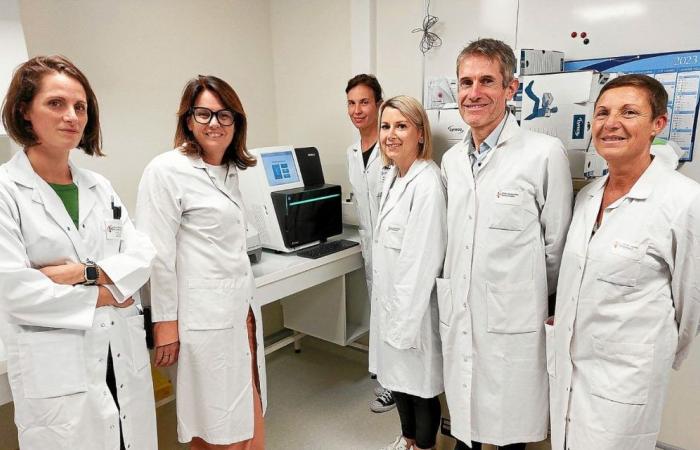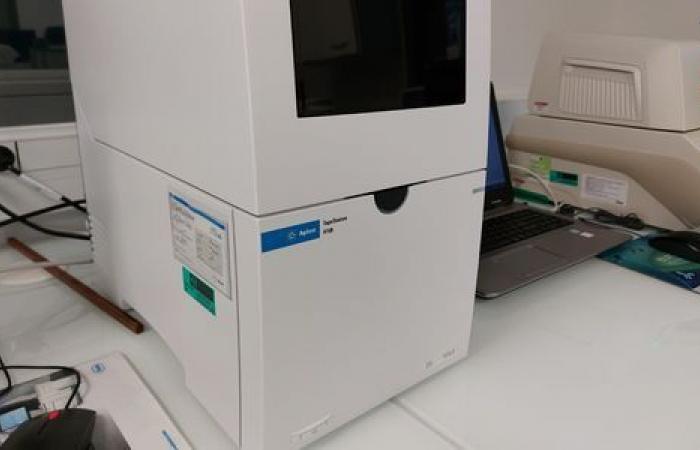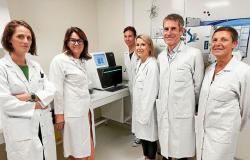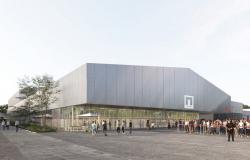It’s a complex tool, but oh so essential. A tool, until now reserved for university hospitals, but which has found its place within the territorial medical biology laboratory of the Cornouaille hospital center, in Quimper. For almost two years, the teams have been using a new generation sequencer on a daily basis. Behind this name, a machine that manages to sift DNA extracted from blood samples from cancer patients, in order to identify mutations in genes responsible for the disease. Since July, this equipment has been associated with a TapeStation (automated electrophoresis solution), which makes it possible to check the quality of DNA samples before high-throughput sequencing.
“Targeted therapy” possible
This cutting-edge equipment has many advantages. And truly improves patient care. Firstly, because it reduces the time taken to receive results, since the samples to be analyzed no longer need to be sent to Brest or Rennes.
“In hematology, we were one or even two months away, compared to 15 days now,” confirm Doctor Aurélie Chauveau, medical biologist in hematology and head of the sequencing activity, and Doctor Marie-Sarah Fangous, head of the laboratory department. . Beyond that, this technology makes it possible to “specify the diagnosis and prognosis” and to implement “targeted therapy”, underlines the medical biologist.
€45,083 financed by patrons
For the moment, the Quimper equipment is used for blood diseases. Tomorrow, the possibilities will be even greater; around plasma samples, then, biopsies. The technique could then be extended to other types of cancers. Oncologist, Doctor Léa Muzellec talks about “lung cancers”, but also “ovarian, prostate or certain digestive cancers”. To confide: “That’s the future! We are ready.”
The message is addressed directly to donors in the territory. Because this equipment necessarily has a cost. Doctor Aurélie Chauveau does not hide it. Referring to “an initial investment of around €100,000”.
This year, €45,083 was also needed for the acquisition of the TapeStation. A sum, entirely covered by patrons and associations (Maison Cadiou, ITS Logistics, Rotary Quimper Odet, Entraide cancer, Argol en rose, Raid Finistère sud, Cornouaille cancer training and research association), via the endowment fund of the University Hospital of Brest, Innoveo.







